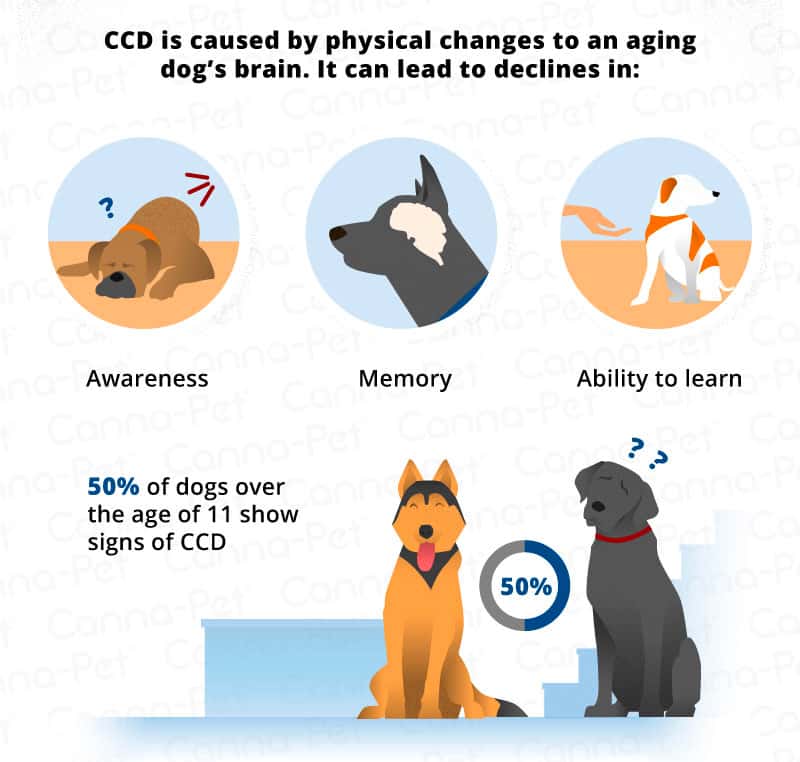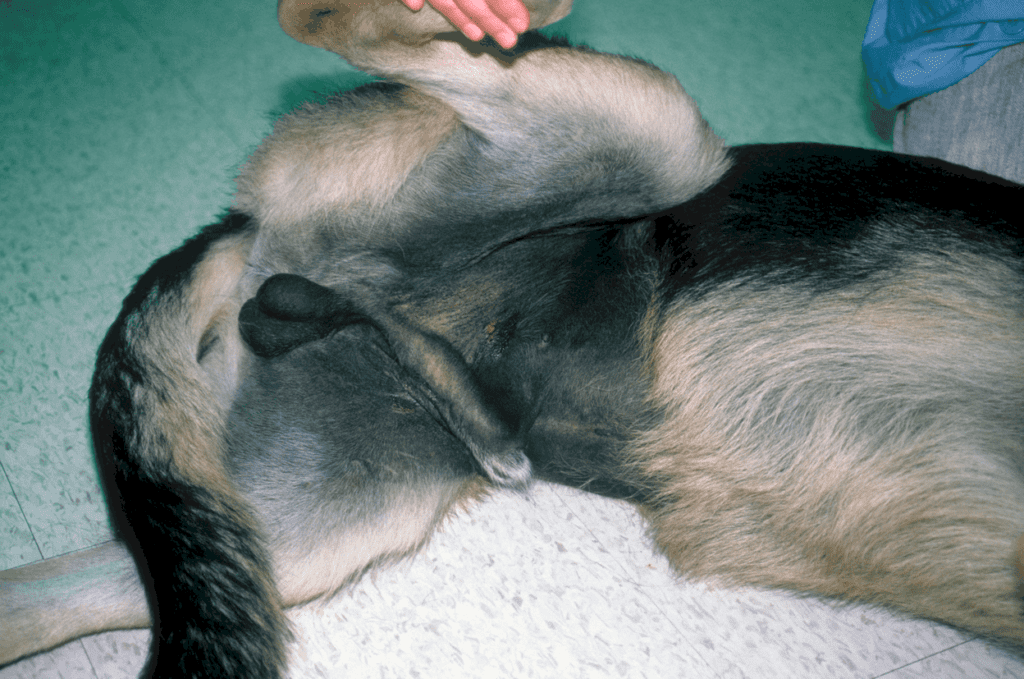Strikingly similar to Alzheimer’s Disease that affects humans, Canine Cognitive Dysfunction Syndrome affects the brain of elderly dogs, causing confusion, forgetfulness about many lifelong habits (eating, favorite people, or house training habits, etc), and normal boundaries.
Researchers believe Cognitive Dysfunction Syndrome (CDS) is caused by physical and chemical changes that affect brain function in older dogs. Dogs with CDS may show signs of confusion and/or various other behavioral changes that are not a normal part of aging.
A dog who may have never left the yard in her entire life may suddenly decide to wander off into the middle of rush hour traffic.

Dog Cognitive Dysfunction Symptoms
You’ll probably be the first to notice signs of CDS, since you’re the one closest to your dog. If you notice changes in your older dog’s habits or behavior, be sure to talk with your veterinarian. Above all, resist the urge to tell yourself that your dog is “just getting old.” With your help, your veterinarian can determine if the changes in your dog are associated with canine Cognitive Dysfunction Syndrome.
- Aimless Wandering
- Disorientation
- Confusion about a previously familiar place (i.e.: gets lost in the house, can’t find her way out of a corner, seems lost in her yard)
- Years of house training seem undone, as the dog forgets to go outside or she forgets to let you know she has to go
- Forgetting to eat, even forgetting to drink in some cases
- Fails to recognize previously favorite people, or who she met recently, be it dog or human
- Sleeping pattern changes drastically
- Pacing
- No longer seeks attention, or wanders away when being pet
- Forgets or stops responding to her name
Available Treatments
The FDA (Food and Drug Administration) has approved the use of a drug called Anipryl® to help slow the process and improve the symptoms of Canine Cognitive Dysfunction, and also approved it for treatment for Cushing’s Disease in dogs. This is the trade name for veterinarians for the drug, selegiline hydrochloride, which is used for Alzheimer’s treatment in humans.
Does your dog?
Disorientation/Confusion
- Appear lost or confused in the house or yard?
- Fail to recognize familiar people?
- Fail to respond to verbal cues or name?
- Have difficulty finding the door or stand on the hinge side of the door?
- Appear to forget the reason for going outdoors?
Interaction with family members
- Seek attention less often?
- Walk away when being petted?
- Show less enthusiasm upon greeting you?
- No longer greet family members?
Sleep and activity changes
- Sleep more during the day?
- Sleepless during the night?
- Wander or pace more?
- Urinate indoors?
- Have accidents indoors soon after being outside?
- Forget to ask you to go outside?




